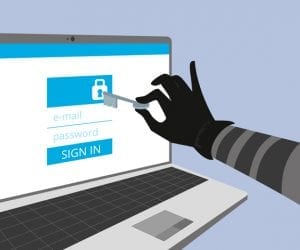IRS Warns Tax Filers About New Tax Refund Scam

Tax season has only just begun and the IRS isn’t losing any time when it comes to alerting taxpayers about scams that are making the rounds – new and old. In particular, the IRS wants all taxpayers to protect themselves from a new, more advanced scam designed to steal data from tax preparers’ records in an attempt to gain access to their client’s refund.
Read Also: How To Recover From Identity Theft & Refund Fraud
The IRS has stated that it has already received many false tax returns. And while the documents appear legit, with accurate taxpayer names, Social Security numbers, addresses and bank account information, the returns are confirmed to be fraudulent.
After acquiring stolen data obtained from phishing tactics, scammers proceeded to file fake tax returns using taxpayers’ account information and deposited the invalid refunds into the their real bank accounts. To complete the theft, the scammers then pose as the IRS or another law enforcement entity via telephone to demand that the taxpayer return the money, citing an error.
The thieves know that using real client information makes it much more difficult to find and stop fraudulent tax returns. By having the taxpayer falsely deliver the money directly to them, the scammers’ job is much easier. It’s too early to determine how many people have been affected, but it’s recommended that you take steps at protecting yourself from being a victim. So, put your guard up and protect your sensitive tax information by doing the following:
- Update the security software on your computer.
- File your tax return as early as possible and, if filing electronically, do so only from a secured network connection.
- Never respond to emails or other communication methods that ask for your personal, tax or financial information.
- Find the new 16-digit verification code from your W-2 form and place it on your tax return to help the IRS accurately identify that the return came from you.
What To Do
The IRS has taken many steps to cut down on return fraud and hopes to identify criminals before they can take your refund. Tax return fraud is not going away any time soon, which is why it’s important for you and other tax filers to take protective measures and be able to avoid falling victim to a tax scam. But, if you do have a fake tax refund in your bank account, the IRS has ways for you to return the funds and avoid being a victim:
Direct Deposit
- Contact the Automated Clearing House (ACH) department of the financial institution where the direct deposit was received and have them return the refund to the IRS.
- Call the IRS at 1.800.829.1040 to explain why the direct deposit is being returned.
Paper Check (Hasn’t Been Cashed)
- On the back of the check, write “Void” in the endorsement section.
- Send the check directly to the appropriate IRS location and include a note explaining that the check is invalid.
Paper Check (Already Cashed)
- Send in your new, genuine payment immediately to an appropriate IRS location.
- Call the IRS at 1.800.829.1040 and explain that you need instructions on how to repay a cashed refund check.
- Act quickly to avoid any interest owed to the IRS.
Reminder…
The IRS will initiate correspondence with you via a paper document; it’s rarely done with a phone call – if at all. If you do need to initiate a call with the IRS, know that the agency will ask all callers, taxpayers and tax professionals alike, to verify their identities when they call.
Be aware that phone calls to the IRS are continuing to ramp up, so callers should be prepared to verify their identities to speed up the process. By law, the IRS will only talk to the taxpayer or to their legally designated representative. To make sure you are ready to talk to an IRS representative, make sure you have the following documents ready:
- Social Security numbers and birth dates for those appearing on the tax refund in question.
- Your Individual Taxpayer Identification Number.
- Your Filing Status.
- The previous-year’s tax return.
- A copy of the tax refund in question and any IRS communications received by the taxpayer.
Having your sensitive financial information stolen can take months to fully recover from. It’s a difficult road to go down but, luckily there are experts available to help.
Whether you think you have been a victim of a tax scam or want to know more about the ways to protect yourself, email Rea & Associates for assistance. Our experts can help you regain control of your finances and protect you from future scams.
By Lesley Mast, CPA (Wooster office)
Check out these articles for more insights about protecting your financial data this tax season:
With Tax Season Comes Tax Scams
New Security Safeguards Introduced To Help Prevent Identity Theft & Refund Fraud
